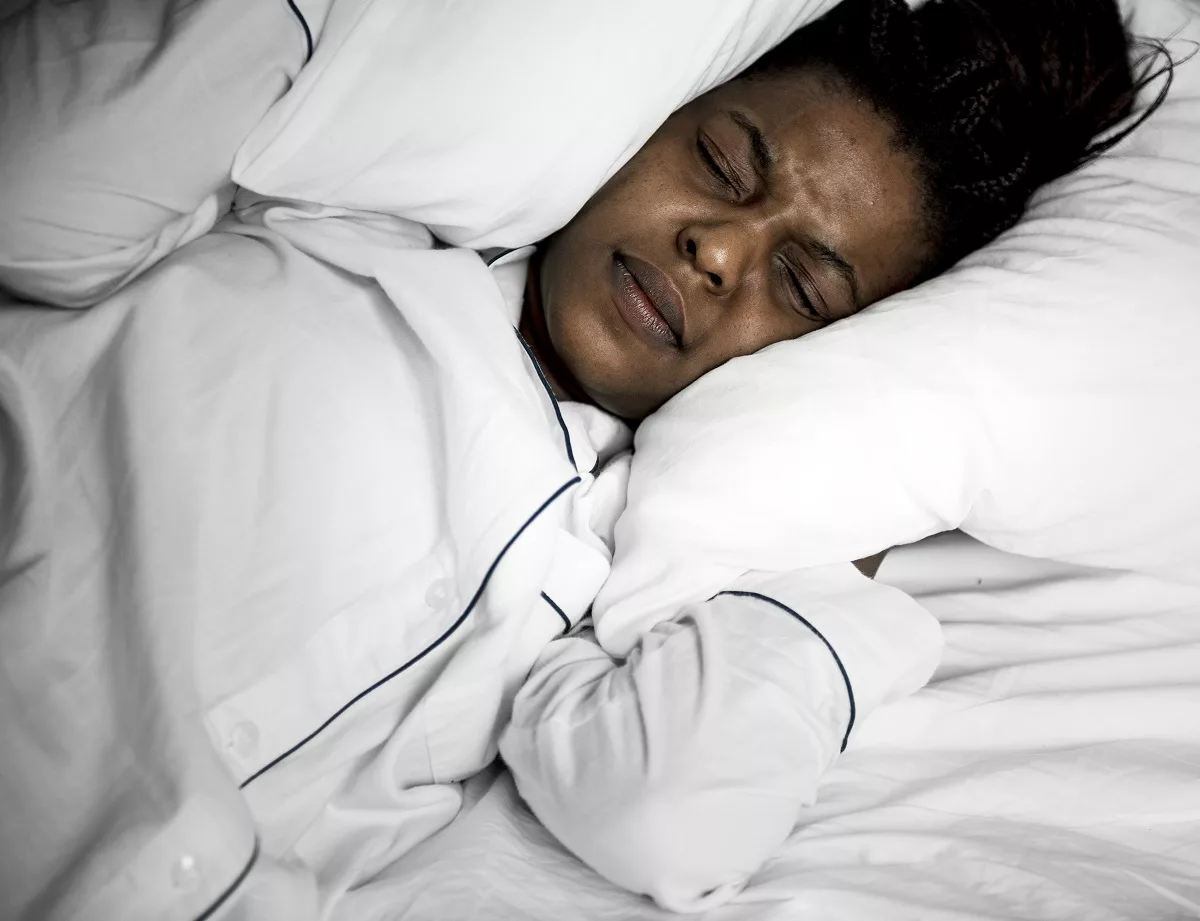A group of disorders that negatively affect the quality, amount, and timing of sleep you can get during nighttime is called sleep disorders. The most common conditions include insomnia, restless legs syndrome, narcolepsy, and sleep apnea. Furthermore, people who develop sleep disorders may also experience mental and physical health problems.
In general, there are more than 80 conditions that affect how well you sleep, when you fall asleep, and how much sleep and wakefulness you get. While anyone may experience problems with sleep from time to time, it is considered that you have a sleep disorder if you regularly have sleep disturbances, feel tired during the day after 7-8 hours of sleep, and it is difficult to perform regular daily activities.
Categories of Sleep Disorders
These categories have changed multiple times over the years. Recently, the International Classification of Sleep Disorders (ICSD) has categorized these disorders based on symptoms, how they impact people, and which body systems they affect. For example:
- Insomnia – Difficulty falling and staying asleep.
- Sleep-related breathing disorders – Breathing changes during sleep.
- Central disorders of hypersomnolence – Problems with feeling alert during the day.
- Circadian rhythm sleep-wake disorders – The Internal clock makes it difficult to fall asleep and wake up on time.
- Parasomnias – It involves physical actions or verbal expressions that occur during sleep. These include eating, talking, or walking.
- Sleep-related movement disorders – In such cases, disorders cause physical movements or urges to move that affect sleep quality.
Sleep Disorder Types
While there are more than 80 types of sleep disorders, check below the most common ones:
- Chronic (long-term) insomnia – People who develop this condition have difficulty falling or staying asleep. It is often diagnosed when these problems last for at least 3 months.
- Obstructive sleep apnea – It is characterized by snoring and movements during sleep. Sometimes, people may stop breathing during sleep.
- Restless legs syndrome – Urges to move legs when you rest.
- Narcolepsy – When this condition occurs, it becomes difficult to regulate when you fall asleep and how long you stay awake.
- Shift work sleep disorder – Sleepiness at unwanted times due to work schedule.
- Delayed sleep phase syndrome – Difficulty waking up in time for work or school.
- REM sleep behavior disorder – Those who suffer from this condition often act out their dreams.
Approximately 50 million people suffer from a sleep disorder in the U.S. However, more than 100 million people in the United States report that they do not get enough sleep.
Symptoms
The symptoms are often different among people with sleep disorders. It depends on the type and severity of the condition, overall health, age, and other factors. Check below some symptoms often noticed in people with these disorders:
- Difficulty falling and staying asleep (it takes more than 30 minutes to fall asleep)
- Snoring, choking, or gasping that occurs during sleep
- Movements during sleep
- A feeling that you cannot move when you wake up
Furthermore, people with sleep disorders may also have symptoms during the day. Examples include:
- Sleepiness during the day
- Frequent daytime naps
- Behavioral changes
- Difficulty paying attention
- Mood swings (including difficulty managing emotions, irritability, and others)
- Frequent falls or accidents
- Difficulty meeting deadlines or performance expectations
Do not hesitate to see a doctor if you experience any of the previous symptoms.
Causes
Usually, a disruption in the body’s cycle of sleep and nighttime wakefulness causes sleep disorders. However, it depends on the type of disorder. Check below for other causes of these disorders:
- A symptom of a mental health disorder or health condition, including nerve disorders, pain, asthma, heart disease, depression, anxiety disorders, and others.
- Genetic mutations (changes)
- Adverse reactions to certain medicines
- Working the night shift
- Substance use disorder
- Reduced levels of some chemicals or minerals in the brain
- Sometimes, it is not possible to determine the exact cause of sleep disorders
Risk Factors
There are some factors that may increase your risk of developing sleep disorders. Check below some examples:
- Underlying conditions
- Persistent stress
- Work late shifts
- A medical or family history of sleep disorders
- Age – Older adults (over 65 years old) are more prone to develop sleep disorders.
- Sex – Women are at increased risk of developing these disorders compared to men.
Complications
People who suffer from sleep disorders may also experience some complications, especially if they do not get treatment. Check below some examples:
- Cardiovascular problems
- Metabolic disorders (including obesity, type 2 diabetes, hormonal imbalance, and others)
- Physical conditions (such as non-alcoholic fatty liver disease, irritable bowel syndrome, fibromyalgia, and others)
- Mental health problems (including mood swings, depression, anxiety, and even suicidal thoughts)
- Problems with concentration, memory, and cognitive function
- Reduced quality of life
- Dementia
This document does not contain all possible complications of sleep disorders. Moreover, in rare cases, sleep disorders can be life-threatening.
How to Prevent Sleep Disorders?
Unfortunately, it is not possible to prevent all types of sleep disorders. However, the following steps may help reduce the risk. For example:
- Avoid tobacco, alcohol, and caffeinated drinks before sleep
- Do not eat chocolate or heavy meals before bed
- You should not take naps after 3 p.m.
Diagnosis
First, doctors perform a physical examination to check for abnormalities linked to the disease, ask some questions about your symptoms and medical history, and perform some tests, such as blood tests and imaging tests.
Your physicians may recommend keeping a sleep diary. It involves recording your sleeping habits, when you go to bed, fall asleep, and wake up. You should also notice if you experience sleepiness during the day.
Commonly, when a sleep disorder is suspected, people are referred to a sleep specialist. These healthcare specialists are trained in diagnosing and treating sleep disorders. They often confirm sleep disorders by performing a sleep study (polysomnogram). During this test, doctors examine the brain’s activity during sleep.
Treatment
The treatment for sleeping disorders is often different because it depends on several factors. For example, your age, type, and severity of the condition, existing health problems, preferences, and others. Check below some common treatments usually recommended for people with sleep disorders:
- Cognitive behavioral therapy
- Sleep routine changes (including a regular sleep schedule and proper sleep hygiene)
- Medicines or supplements
- Dosage or medication changes that cause excessive sleepiness
- Continuous positive airway pressure (CPAP)
- Light therapy
Medicines
Check below some medicines and supplements used to treat common sleep disorders:
- Insomnia – Doctors often recommend sleep aids (such as Zolpidem, Zaleplon, Eszopiclone, Ramelteon, Suvorexant, Lemborexant, or Doxepin)
- Restless legs syndrome (these include Gabapentin, Pregabalin, or Gabapentin Enacarbil)
- Narcolepsy – Usually, doctors recommend stimulants or wake-promoting medicines, including Modafinil, Armodafinil, Pitolisant, Sodium oxybate, or Solriamfetol.
Home Remedies and Lifestyle Changes
Physicians may also recommend some changes to your sleep hygiene, sleeping routine, and sleeping environment. Check below some examples:
- Comfortable sleep environment – It is important to make sure your bedroom is quiet, dark, and cool before sleep.
- Manage stress – You should try to reduce stress before sleep.
- It is not recommended to watch television or videos on the phone, eat, or work in the bedroom.
- Make a regular bedtime routine
- Regularly perform physical exercise
Frequently Asked Questions
How much sleep do I need?
Sleep is a vital part of our lives because it helps the body function properly. According to some research, the recommended time for sleeping differs among individuals. It depends on your age, existing health problems, certain medications, and other factors. For example, a healthy adult needs between 7-9 hours of sleep per night, while children and teenagers need more sleep.
When should I see a healthcare provider?
It is recommended to see a doctor if you have problems with sleep and wakefulness. This includes problems with falling asleep, staying or staying awake, sleepiness, and tiredness during the day.
What are the most common sleep disorders?
Insomnia, restless legs syndrome, and sleep apnea are the most common sleep disorders. Ask your healthcare provider if you have additional questions.




